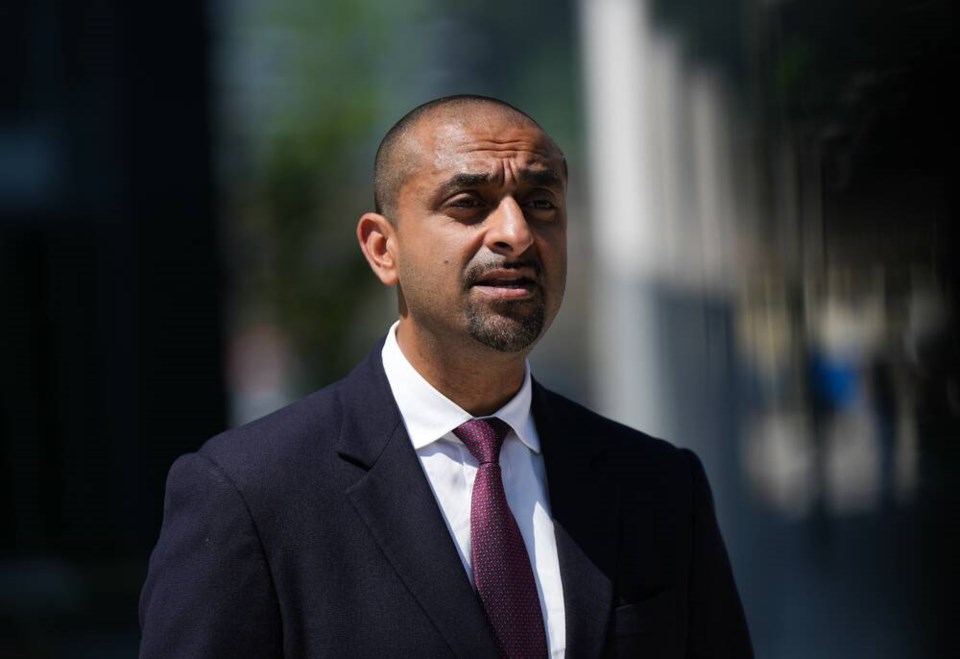The B.C. government is granting a one-time $430 benefit to the roughly 20,000 seniors in its support program for older low-income renters.
B.C. Housing Minister Ravi Kahlon said eligible seniors don’t need to apply for the payment, which will be sent out this month.
Kahlon said the Shelter Aid for Elderly Renters program, known as SAFER, will also expand eligibility for its benefits to seniors with annual incomes up to $37,240, compared to the previous $33,000 limit.
Other changes will include the possible annual review and amendment of rent ceilings, which are used to determine how much rental assistance a senior receives.
B.C. Green Party Leader Sonia Furstenau said in a statement the changes were a “positive development” but not enough, calling for the province to raise the threshold for qualifying seniors to $45,000 for individuals and $50,000 for couples.
Former B.C. seniors advocate Isobel Mackenzie criticized the seniors-aid program in her final report last month, saying the average Vancouver rent is more than double the maximum subsidy of $803 a month.
Mackenzie said at the time that the rent ceiling should be raised to meet the average rent of a SAFER recipient and be allowed to increase annually to address allowable yearly rent increases in B.C.
She said the average person using SAFER makes under $21,000 a year.
Furstenau said the latest changes to SAFER do not resolve those concerns.
“Relying on one-time benefits as a solution is ineffective and short-sighted,” she said. “It fails to address the systemic issues at play, leaving seniors to continually choose between essentials like medication, food or heating.”
Kahlon said the improvements reflect the province’s response given “the dollars we had available.”
“These supports are important, but this is just one of the things that we’re doing to support seniors,” Kahlon says, referring to renter tax credits and efforts to expand affordable housing options.
Kahlon said the province expects the number of seniors benefiting from SAFER to grow to 25,000 with the new, expanded eligibility threshold.
The Saanich Volunteer Services Society, which offers a range of programs used by seniors, said in a statement that it supports the increase, but it won’t solve the reality of high rental rates in the region, and increasing expenses for those on fixed incomes who are encouraged to remain living independently. “Even with this increase, many people will continue to face a financial gap.”
The society, which works with about 900 clients a year, said it provides such services as food-hamper and meal delivery, social visits, minor home repairs and transportation to appointments for seniors and those over 19 who are on fixed incomes and have to make “hard choices” about how they spend their money.
A group of 140 volunteers makes the services possible, the society said.
“We will continue to support Saanich residents to meet their needs through donations, volunteers and continued partnerships with interested local organizations. We hope to help fill gaps while the B.C. government continues working to improve the lives of those on fixed incomes, like seniors who will directly benefit from this change to SAFER and RAP.”



